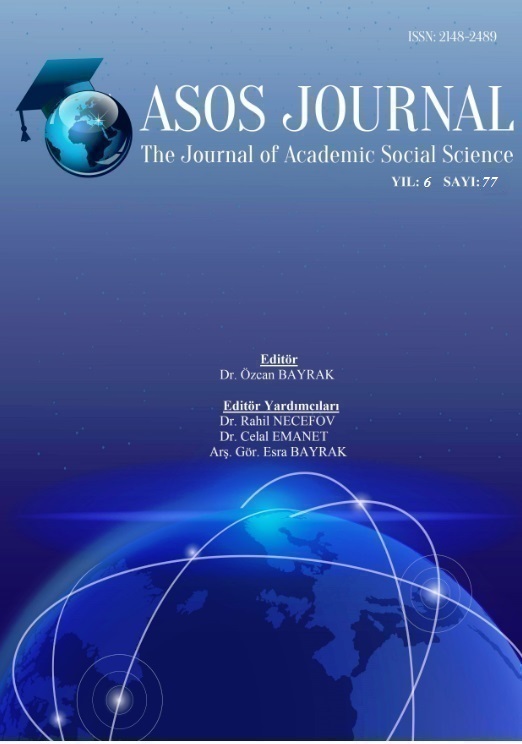MATEMATİK ÖĞRETMEN ADAYLARININ MESLEKİ İLGİLERİNİN VE İLGİ DÜZEYLERİNDEKİ DEĞİŞİMİN SINIF VE CİNSİYETE GÖRE BELİRLENMESİ
Author :
Abstract
Holland mesleki kişilikleri altı başlık halinde sınıflandırmıştır. Bunlar: Gerçekçi, araştırmacı, sanatçı, sosyal, girişimci ve gelenekseldir. Mesleki kişiliğin bireyin yaşantısında ve mesleki verimliliği noktasında önemli bir etken olduğu ifade edilebilir. Bu doğrultuda bu çalışmanın amacı bir üniversitenin Matematik Eğitimi Anabilim Dalında öğrenim gören öğrencilerin mesleki ilgilerinin ve ilgi düzeylerindeki değişimin sınıf ve cinsiyete göre belirlenmesidir. Çalışmada nicel araştırma yöntemlerinden kesitsel tarama yöntemi kullanılmıştır. Araştırmanın çalışma grubunu bir üniversitenin Matematik Eğitimi Anabilim Dalında öğrenim gören 264 öğretmen adayı oluşturmaktadır. Araştırmada veri toplama aracı olarak 55 maddelik mesleki ilgi ölçeği kullanılmıştır. Verilerin analizinde sınıflara göre mesleki ilgi puanları arasındaki farkı incelemek için tek yönlü Anova (One-way Anova) testi kullanılmıştır. Sınıflara göre faktörler arasındaki ilişki betimsel olarak açıklanmıştır. Faktör puanlarının cinsiyete göre farklılaşıp farklılaşmadığını test etmek için ilişkisiz örneklemler t testi kullanılmıştır. Sonuçlar incelendiğinde bazı değişkenler açısından sınıflar arası anlamlı farkın ortaya çıktığı görülmüştür.
Keywords
Abstract
Holland classified professional personalities into six titles. These are: Realistic, Researcher, Artist, Social, Entrepreneur and Tradition. It can be said that your professional personality is an important factor in the individual's life and professional productivity point. In this respect, the aim of this study is to determine the change in the profession and interest levels of the students who are studying at the university of Mathematics Education, Department of Education, by class and sex. A cross-sectional screening method was used in the study. The study group of the study is composed of 264 teacher candidates who are studying at the Department of Mathematics Education at a university. A 55-item professional interest scale was used as the data collection tool in the study. One-way ANOVA (One-way ANOVA) test was used to analyze the difference between occupational interest scores according to classes in the analysis of the data. The relationship between the factors according to the classes is descriptively explained. Unrelated samples t-test was used to test whether the factor scores differed by sex. When the results were examined, it was seen that there was a meaningful difference between the classes in terms of some variables.
